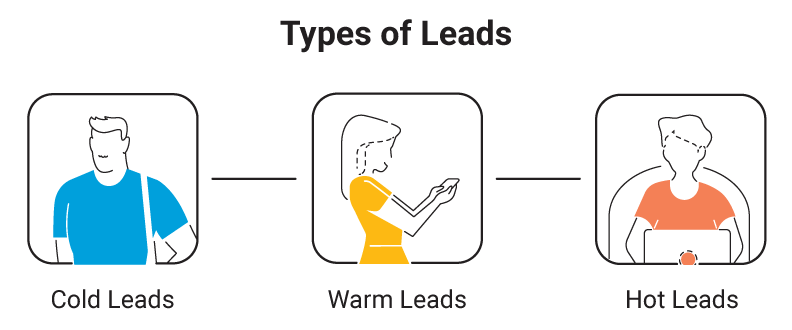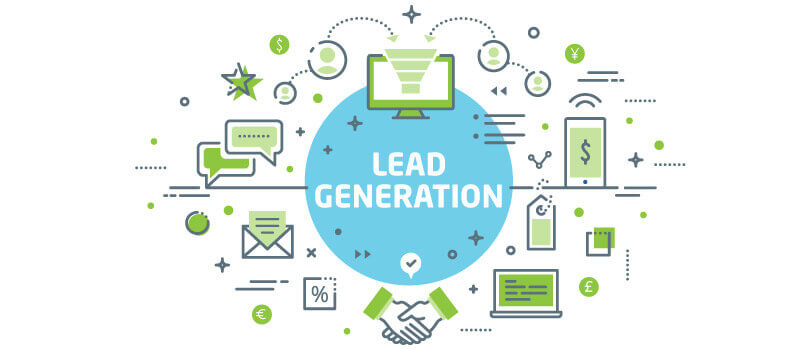You often hear about “leads” in the business world. But do you really understand what a lead is and what it can do for your business?
Undoubtedly the most important thing to know about leads is that good ones are the only way to grow your business and increase sales. So, knowing how to define a lead, and how to define lead generation, is critical to the success of your business—no matter what industry you are in.
If you’ve ever found yourself asking:
- What types of leads are out there?
- What is the difference between leads and prospects?
- How do you nurture a sales lead?
Keep reading! We have the answers to these popular questions and a whole lot more.
The sales lead definition
Simply put, a sales lead is a contact that may be interested in your product or service. You will have some sort of contact information for this lead, such as their name, phone number, email address, and/or mailing address. You may also have information such as:
- Gender
- Marital status
- Homeowner or renter
- Annual salary
- Job
- Number of children
If you have a B2B sales lead, you may have information such as:
- Industry
- Position within the company
- Size of the company
- Annual sales
- Number of employees
- Square footage
That said, when you want a sales lead definition, you have to dig a bit deeper than the surface definition.
What types of leads are there?
There are a number of different types of leads in the business world. And the type of lead you have depends on how much contact you’ve made with them. Some examples of types of leads include:

- Cold leads: These are leads that have shown no interest in your business or your products or services. They may not even know you exist or they may have ignored your attempts to reach out to them.
- Warm leads: These are leads that have engaged with you on some level. Maybe to fill out a form or sign up for a newsletter. Or they may have engaged in two-way conversation, such as asking a question via chat.
- Hot leads: These are leads that have engaged with you and shown a keen interest to make a purchase. They have a clearly expressed need and are ready to buy.
If you look at each of these types of sales leads, you will see they follow the early stages of the sales funnel. Yet the question now that we have determined the sales lead definition is: how to define sales lead generation.
How to define lead generation
When you want sales leads, you have find them. Because despite what you may think, they do not often come to YOU! This is precisely what lead generation is: The act of finding potential customers. And it is the first step in the sales process.
Of course, before you can generate leads for your business, you must determine what your ideal target audience looks like. To figure this out you need to get to know them. From there, you can decide how you will promote your products and services.
When you are ready for lead generation, the key is to determine how to do it. There are different ways to generate leads. What works best for you will depend on the amount of time and money you have. Here are three ways to generate leads:

Organic lead generation
This is using your online presence, such as social media or blogging (also called content marketing), to build a following. Following the connection you make, your followers may choose to become a lead.

Lead generation by advertising
This method costs money but yields faster results. You use advertising, such as social media advertising or online display advertising, to promote your business and typically offer something in exchange for a lead’s contact information.

Buying sales leads
This is when you buy a list of sales leads from a lead provider. This will require a greater financial investment, but it will save you a lot of time and effort.
What are the benefits of buying leads?
You may be thinking that generating leads organically is the way to go. After all, it’s free, right? But while it may be free, it is extremely time-consuming, and it can take months to see the results of your efforts. Not every business has this kind of time!
With paid ads, you’ll undoubtedly see faster results, but you can also end up spending a lot of money before you find an ad that really works for you.
When it comes to buying leads, you will instantly receive a list of qualified, targeted sales leads that you can market to right away. That’s the beauty of a paid list. You don’t have to spend countless hours searching for leads interested that may be interested in your offering. All you need to do is choose from among dozens of targeted search selections—and the search tool will do the rest!
Once you do decide to purchase a list of leads, it is important that you buy a quality list of prospects. This will require you to find credible lead provider.
How to choose a qualified lead provider
Here’s the hard truth: If your leads are not high quality then your marketing efforts can’t produce the results you need. That’s why it’s not always a great idea to purchase something cheap. In fact, when you are looking for a lead provider, you need to be sure of the following:
- Quality leads: Quality leads require a lead provider to spend significant time and money to keep their data up-to-date. This means sticking with a reputable provider you can count on.
- Trustworthy: You should be able to easily find out how your lead provider collects their data and ensure they respect all relevant privacy laws.
- Guarantee: No lead provider can guarantee their data is 100% accurate because a lead’s circumstances can change on any given day. A reputable provider will offer a satisfaction guarantee, providing a refund for any data that is undeliverable or out-of-date.
Is lead accuracy really that important?
Absolutely! If your purchased leads aren’t accurate, then you wasted both your time AND your money—and that’s no good! At Salesgenie®, we understand that the hours in your day and your budget are important. So, we invest over $20 million each year to make sure our data is as accurate as it can be. And for data that isn’t right? We have an industry-leading satisfaction guarantee.
You know how to define sales leads—now you need your own
There are so many ways you can find new leads for your business. But don’t forget that if you ever need help finding or connecting with them, the experts at Salesgenie are available to help you. Our turnkey marketing solutions have small business owners like you covered from start to send.






